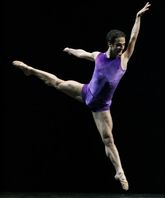AuthorA 20 year old fitness enthusiast and dedicated Olympic style weightlifter. I am a Level 2 Weightlifting coach, Powerlifter, and non-competitive Irish dancer. I'm determined to live a healthier lifestyle and take care of my body whilst influencing other young people to do so. I never doubt my ability to achieve something; I just change what I'm doing until I succeed. Archives
May 2021
|
Back to Blog
Breaking Weightlifting stereotypes17/1/2017 In every sport you are going to get people who criticise and assume things about people who participate in that sport. Usually every hobby comes with stereotypes, it shouldn’t but it happens and sometimes people can become bombarded by stereotypes and lies. Often stereotypes aren’t true, but sometimes people don’t understand this. Whether you’ve tried Olympic Weightlifting before or are completely new to the sport, I’m going to break some Weightlifting stereotypes. Expectations Once you tell someone you’re an Olympic Weightlifter, you can sometimes be overestimated or underestimated. Many people assume because you must be strong that you are excellent at fighting, for me this is not the case. Having strength does not mean you have the skill to be able to win a fight; fighting and Weightlifting are very different things. Being underestimated can often apply to women Weightlifters. For example if a woman is asked to complete a task which could involve heavy lifting, sometimes men may step in and ask if they need help. Unless the man is underestimating the woman by making sly comments; this is pure politeness. Usually men who lift do not have issues with being underestimated, but they could be expected to know how to fight; just because they lift weights. Both genders can face both kinds of expectations often; they shouldn’t have to put up with any pressure involving what other people expect. SexualityWith some sports, people may assume that a group of people or an individual is a specific sexuality. I find that especially in Weightlifting, Women can be assumed to be bisexual, lesbian or “not straight”. Just because women are partaking in a sport which is usually more popular for men, their sexuality is associated. Whether a female Weightlifter is straight or not, since when did building muscle as a women automatically mean you like other women. With men I’ve not heard that their sexuality is assumed because of Weightlifting unless they are assumed to be straight, perhaps this could be an issue for men in sports more popular for females than males. Gender People tend to associate men and women with masculine and feminine sports, but really any gender can participate in any sports. For Weightlifting, many people would assume that only men are Weightlifters or should be Weightlifters. They also may assume that if you are a female Weightlifter, you might not be very strong because of your gender and since you aren’t male, that you may never be very good at the sport. This could be the same for men if they are participating in a so-called “feminine” sport such as ballet dance. Just because they are male, many people would assume they are nowhere near as great as women at ballet. AppearanceAnother stereotype for weightlifting is that you have to have a certain appearance to prove you’re good at the sport. People may assume that if a woman or man isn’t bulky or “looks the part” that they mustn’t be any good at the sport. In fact, you don’t need to have a certain body type to be able to participate or be good at any sports; you could be muscular, skinny or fat. Weightlifting definitely helps you to grow muscle mass, but it isn’t going to arrive overnight. This is exactly the same with other sports; you aren’t going to see major results in a day. So if you think you’re going to become bulky just by trying Weightlifting once, sadly you won’t. If you are bombarded by stereotypes and sometimes can be put down by what other people think of you by participating in certain sports, don’t give up what you are doing unless you no longer enjoy it. Stereotypes are nothing but words and assumptions made by people who have very little knowledge in what you’re passionate about. In no way, shape or form should someone’s sexuality, gender or appearances have an impact on how other people view their sporting ability. No matter which of these factors relate to you, do not feel discouraged and continue breaking those sport stereotypes. Please note that the stereotypes mentioned are just from personal experience and may not always be relatable for all individuals.
0 Comments
Read More
Your comment will be posted after it is approved.
Leave a Reply. |